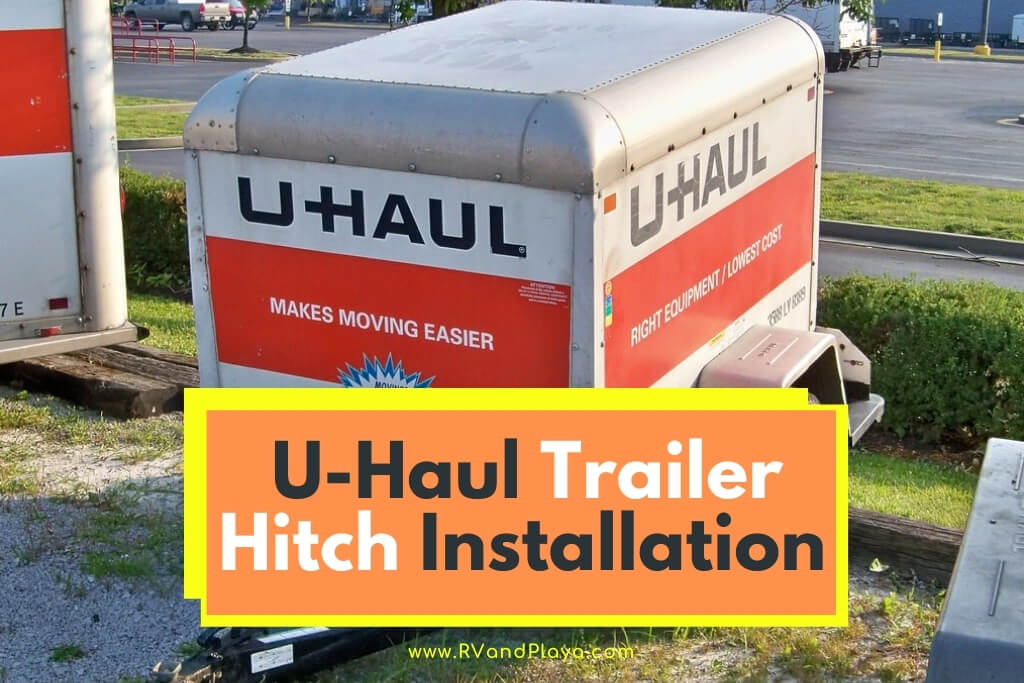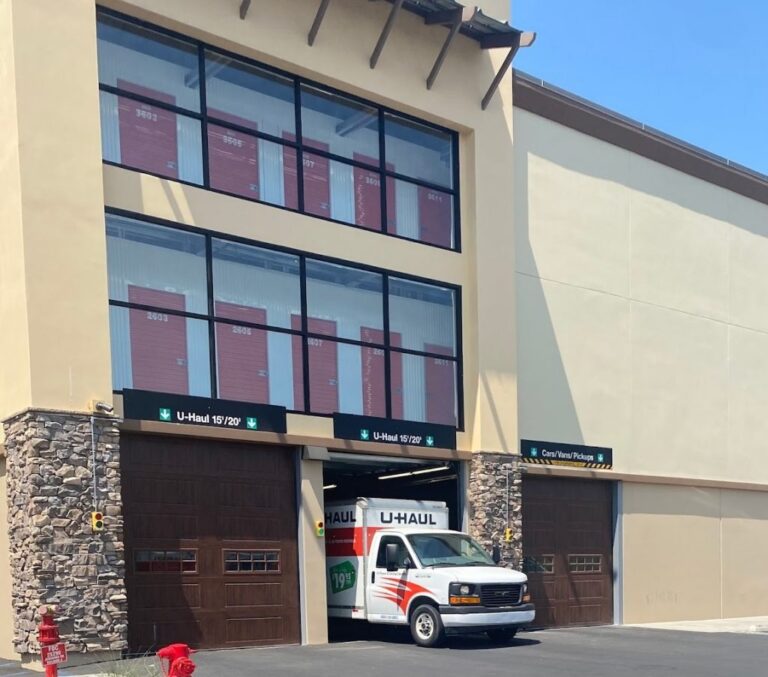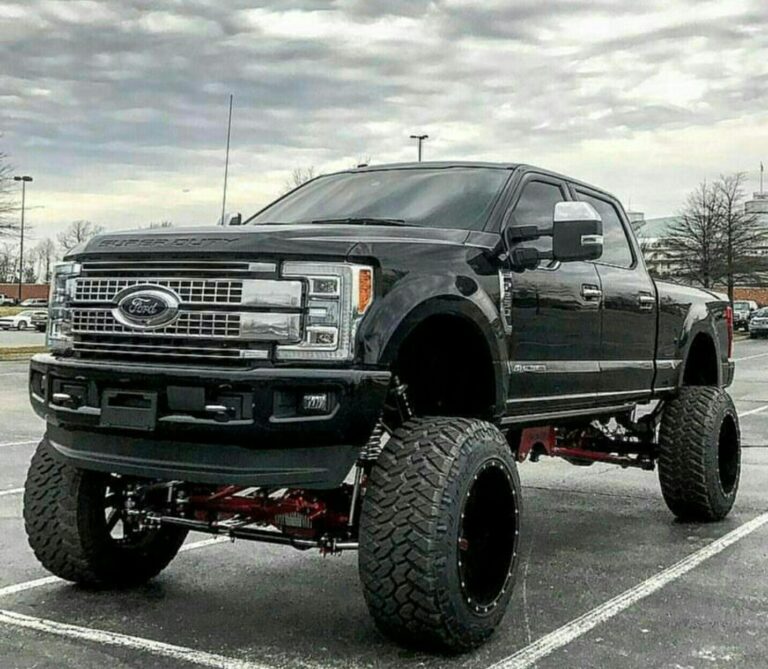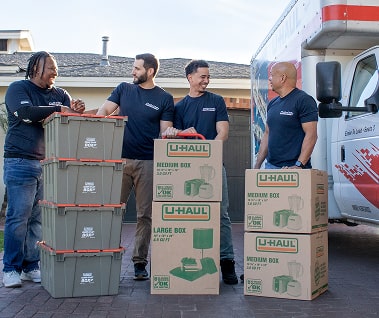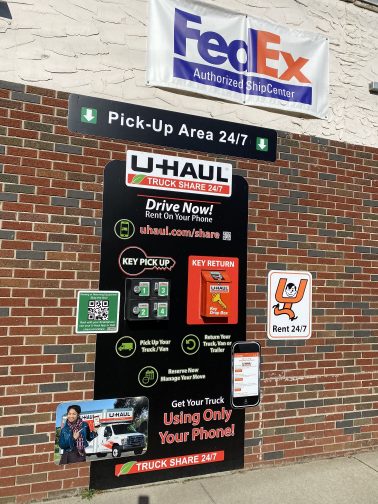U-Haul Hitch Installation: Your Comprehensive Guide to Towing Confidence

U-Haul Hitch Installation: Your Comprehensive Guide to Towing Confidence
Towing opens up a world of possibilities, from moving homes and embarking on cross-country adventures with a travel trailer to transporting recreational vehicles or utility equipment. At the heart of safe and efficient towing lies a properly installed hitch. While the concept of attaching a trailer to a vehicle seems straightforward, the underlying process of U-Haul hitch installation is a specialized service that ensures your towing setup is secure, compliant, and ready for the road ahead. This comprehensive guide will delve into every aspect of U-Haul’s professional hitch installation, offering insights, practical advice, and everything you need to know to tow with confidence.
Why Choose U-Haul for Hitch Installation?
U-Haul has established itself as a household name in moving and towing solutions, and their expertise extends significantly to hitch installations. Opting for U-Haul for your hitch needs comes with several compelling advantages that prioritize safety, convenience, and reliability.
Firstly, U-Haul boasts a vast network of service centers across North America, making professional hitch installation accessible to nearly everyone. This widespread availability is coupled with a team of trained technicians who specialize in fitting the correct hitch to your specific vehicle model and towing requirements. They understand the nuances of various vehicle frames, exhaust systems, and electrical configurations, ensuring a precise and secure fit.
Beyond expertise, U-Haul offers a wide selection of hitches, including custom-fit options, ensuring that whether you’re towing a small utility trailer or a substantial travel trailer, there’s a solution designed for your needs. Their commitment to safety is paramount, with installations adhering to strict industry standards. Furthermore, U-Haul often provides competitive pricing and backs their installations with a limited lifetime warranty, offering peace of mind that your investment is protected. The convenience of scheduling an appointment online and the ability to get a complete towing package (hitch, ball mount, wiring, and even a trailer) in one place makes U-Haul a go-to choice for many.
Understanding Hitch Classes and Your Needs
Before any installation begins, it’s crucial to understand the different classes of hitches and how to match them to your towing requirements and vehicle’s capabilities. Choosing the right hitch class is not just about compatibility; it’s fundamental for safety and preventing damage to your vehicle or trailer.
Hitch classes are categorized based on their Gross Trailer Weight (GTW) and Tongue Weight (TW) capacities:
- Class 1 (Light Duty): GTW up to 2,000 lbs, TW up to 200 lbs. Ideal for small cars, sedans, and crossovers, typically used for bike racks, cargo carriers, or very small utility trailers.
- Class 2 (Medium Duty): GTW up to 3,500 lbs, TW up to 350 lbs. Suitable for larger sedans, minivans, and small SUVs, often used for small boat trailers, pop-up campers, or utility trailers.
- Class 3 (Heavy Duty): GTW up to 8,000 lbs, TW up to 800 lbs. The most common class, fitting SUVs, trucks, and full-size vans. Used for mid-size boat trailers, car haulers, and many travel trailers.
- Class 4 (Extra Heavy Duty): GTW up to 10,000 lbs, TW up to 1,000 lbs. Designed for full-size trucks and large SUVs, often used for larger travel trailers, toy haulers, or heavier utility trailers.
- Class 5 (Super Heavy Duty): GTW up to 17,000 lbs (and often more), TW up to 1,700 lbs (and more). Reserved for heavy-duty trucks, these are for serious towing, including large fifth-wheel or gooseneck trailers.
U-Haul’s technicians will guide you through this selection process, considering your vehicle’s towing capacity (found in your owner’s manual), the weight of what you plan to tow, and the type of trailer you’ll be using. They ensure that the chosen hitch not only fits your vehicle but also safely exceeds your maximum anticipated towing load.
The U-Haul Hitch Installation Process: A Step-by-Step Overview
The process of getting a hitch installed at U-Haul is designed for efficiency and precision, ensuring a safe and reliable towing solution.
- Consultation & Selection: Your journey begins with a consultation. You’ll provide details about your vehicle (make, model, year) and your intended towing needs. U-Haul staff will then recommend the appropriate hitch class and specific receiver model that fits your vehicle’s frame and towing capacity. This often involves checking their extensive database for custom-fit options.
- Scheduling the Installation: Once the hitch and any necessary accessories (like a wiring harness) are selected, you’ll schedule an appointment. U-Haul offers convenient online scheduling, allowing you to choose a time slot that works best for you.
- The Installation Day:
- Vehicle Preparation: Upon arrival, your vehicle will be carefully positioned, often on a lift, to provide technicians with optimal access to the undercarriage. Safety checks are performed.
- Mounting the Receiver Hitch: The core of the installation involves securely bolting the receiver hitch to your vehicle’s frame. This may require drilling new holes or utilizing existing ones, depending on the vehicle and hitch model. Technicians ensure the hitch is properly aligned and torqued to manufacturer specifications.
- Wiring Harness Installation: Crucially, a wiring harness is installed to connect your vehicle’s electrical system to the trailer’s lights (tail lights, brake lights, turn signals). This involves routing wires, making secure connections, and often installing a converter box to manage electrical signals. This step is vital for legal and safe towing.
- Testing and Verification: After installation, all connections are thoroughly tested. The wiring harness is checked with a diagnostic tool to ensure all trailer lights function correctly. The hitch mounting bolts are double-checked for tightness.
- Final Inspection and Customer Handover: A final inspection ensures everything is secure and aesthetically pleasing. The technician will then review the installation with you, explain basic hitch operation, and answer any questions you may have. You’ll also receive documentation for your warranty.
The entire process typically takes anywhere from 1 to 3 hours, depending on the complexity of the vehicle and the hitch system being installed. U-Haul’s trained professionals utilize specialized tools and follow manufacturer guidelines to ensure a precise and safe installation.
Essential Components of a U-Haul Hitch Setup
A complete towing setup involves more than just the receiver hitch. Understanding the role of each component is key to safe operation:
- Receiver Hitch: The primary component, bolted to the vehicle frame, featuring a square opening (receiver tube) where other towing accessories are inserted.
- Ball Mount: A removable accessory that slides into the receiver tube, secured by a hitch pin and clip. It provides the platform for the hitch ball. Ball mounts come in various drops or rises to ensure the trailer tows level.
- Hitch Ball: A spherical ball that attaches to the ball mount and serves as the connection point for the trailer coupler. Hitch balls come in different diameters (e.g., 1-7/8", 2", 2-5/16") and must match the trailer’s coupler size.
- Hitch Pin & Clip: Used to secure the ball mount (or any other hitch accessory) within the receiver tube.
- Wiring Harness: Connects the vehicle’s electrical system to the trailer’s lights, ensuring turn signals, brake lights, and tail lights on the trailer are operational and synchronized with the tow vehicle.
- Optional Components:
- Weight Distribution System: For heavier trailers, this system helps distribute the trailer’s tongue weight more evenly across the tow vehicle’s axles and the trailer’s axles, improving stability and handling.
- Sway Control: Devices that reduce trailer sway, particularly in windy conditions or when passed by large vehicles.
- Brake Controller: Required for trailers with electric brakes, allowing the driver to manually or automatically apply the trailer’s brakes for safer stopping.
DIY vs. Professional Installation: Weighing Your Options
The allure of saving money might lead some to consider a DIY hitch installation. However, for most vehicle owners, a professional installation, especially from a reputable service like U-Haul, is the safer and more reliable choice.
DIY Pros:
- Potential cost savings on labor.
- Satisfaction of doing it yourself.
DIY Cons:
- Complexity: Modern vehicles can have complex frames, exhaust routing, and electrical systems.
- Specialized Tools: Requires specific torque wrenches, drills, and possibly vehicle lifts.
- Safety Risks: Improper installation can lead to hitch failure, accidents, and severe injury.
- Potential Damage: Incorrect drilling or wiring can damage your vehicle’s frame, body, or electrical system, potentially voiding warranties.
- Electrical Challenges: Wiring harnesses can be tricky, requiring knowledge of vehicle electrical systems to avoid short circuits or damage.
- Time Consuming: What takes a professional an hour or two can take a DIYer half a day or more.
Professional Pros (U-Haul):
- Expertise & Experience: Trained technicians ensure correct fitment and secure installation.
- Specialized Tools & Equipment: Access to lifts, specialized wrenches, and diagnostic tools for precise work.
- Safety Assurance: Installations adhere to strict safety standards, minimizing risks.
- Warranty: U-Haul offers a limited lifetime warranty on their installed hitches and wiring, providing peace of mind.
- Time-Saving: Quick and efficient service.
- Correct Wiring: Ensures all trailer lights function properly and legally.
- Vehicle Warranty Protection: Avoids potential issues with your vehicle’s warranty.
For the vast majority of vehicle owners, the peace of mind, safety, and reliability offered by a professional U-Haul hitch installation far outweigh the perceived savings of a DIY approach.
Important Considerations Before and After Installation
Before Installation:
- Consult Your Owner’s Manual: Always check your vehicle’s owner’s manual for its maximum towing capacity, including GTW and TW limits. Never exceed these limits.
- State and Local Laws: Be aware of any specific towing regulations in your state or region regarding safety chains, lighting, and brake requirements.
- Budget: Factor in the cost of the hitch, wiring, installation labor, and any additional accessories like a ball mount or hitch ball.
- Type of Trailer: Know what you plan to tow, as this dictates the hitch class and any additional equipment needed (e.g., brake controller for trailers over a certain weight).
After Installation:
- Regular Maintenance: Periodically check all hitch bolts for tightness. Inspect the hitch for rust or damage. Keep the receiver tube clean.
- Check Connections: Before every tow, ensure the hitch ball is properly seated in the coupler, the coupler latch is secure, and safety chains are correctly crossed and attached. Confirm all trailer lights are working.
- Understand Tongue Weight: Maintain proper tongue weight (typically 10-15% of the GTW) for stability. Too little or too much can lead to sway or poor handling.
- Safe Driving Practices: Drive slower, allow more stopping distance, and make wider turns when towing. Be mindful of increased vehicle length and weight.
Benefits of Professional U-Haul Hitch Installation
The decision to opt for U-Haul’s professional hitch installation services brings a multitude of benefits that contribute to a safe and stress-free towing experience:
- Uncompromised Safety: The paramount benefit. Correct installation minimizes the risk of hitch failure, trailer detachment, and accidents.
- Peace of Mind: Knowing your hitch is installed by certified professionals using the right tools and techniques allows you to tow with confidence.
- Correct Fitment: U-Haul ensures the hitch is perfectly matched to your vehicle’s make and model, optimizing performance and avoiding structural issues.
- Warranty Protection: A limited lifetime warranty on the hitch and installation provides long-term assurance.
- Time Efficiency: Professional installation is quick, allowing you to get on the road faster.
- Legal Compliance: Proper wiring and hitch classification ensure your towing setup meets all legal requirements.
- Expert Advice: Access to knowledgeable staff for advice on towing best practices, accessories, and troubleshooting.
U-Haul Hitch Installation Estimated Pricing
Please note that these are estimated prices and can vary significantly based on vehicle make/model, hitch complexity, location, and current promotions. It’s always best to get a specific quote from your local U-Haul center.
| Component/Service | Class 1 Hitch (e.g., Sedan) | Class 2 Hitch (e.g., Minivan) | Class 3 Hitch (e.g., SUV/Truck) | Class 4/5 Hitch (e.g., HD Truck) |
|---|---|---|---|---|
| Receiver Hitch (Part) | $150 – $250 | $180 – $300 | $200 – $400 | $300 – $600+ |
| Wiring Harness (Part) | $60 – $120 | $70 – $150 | $80 – $200 | $100 – $250+ |
| Installation Labor | $100 – $180 | $120 – $200 | $150 – $250 | $200 – $350+ |
| Total Estimated Cost | $310 – $550 | $370 – $650 | $430 – $850 | $600 – $1200+ |
| Additional Items | Ball Mount & Ball ($40-80) | Ball Mount & Ball ($40-80) | Ball Mount & Ball ($40-100) | Ball Mount & Ball ($50-120) |
| Pin & Clip ($10-20) | Pin & Clip ($10-20) | Pin & Clip ($10-20) | Pin & Clip ($10-20) | |
| Brake Controller (Install extra) | Weight Dist. (Install extra) |
Disclaimer: Prices are estimates only and do not include sales tax. Always verify with your local U-Haul provider for an accurate quote.
Frequently Asked Questions (FAQ)
Q1: How long does a U-Haul hitch installation take?
A1: Most standard hitch installations, including wiring, take between 1 to 3 hours. More complex installations or those requiring vehicle modifications might take longer.
Q2: Do I need a wiring harness if I’m only using a bike rack?
A2: No, if you’re only using a hitch for accessories like bike racks or cargo carriers that don’t have lights, a wiring harness is not necessary. It’s only required when towing a trailer that needs electrical connection for its lights.
Q3: Can U-Haul install a hitch on any vehicle?
A3: U-Haul can install hitches on most vehicles. However, some very small cars or vehicles not designed for towing may not be compatible. Their system will determine if a hitch is available for your specific make and model.
Q4: What is tongue weight, and why is it important?
A4: Tongue weight (TW) is the downward force exerted by the trailer’s coupler onto the hitch ball of the tow vehicle. It’s crucial for stability, typically recommended to be 10-15% of the Gross Trailer Weight (GTW). Incorrect tongue weight can lead to trailer sway or excessive stress on the tow vehicle.
Q5: Does U-Haul offer a warranty on installations?
A5: Yes, U-Haul offers a limited lifetime warranty on their professionally installed hitches and wiring, providing coverage against defects and ensuring peace of mind.
Q6: Can I buy the hitch from U-Haul and install it myself?
A6: Yes, U-Haul sells hitches and wiring harnesses for DIY installation. However, they strongly recommend professional installation for safety and to ensure correct fitment and electrical connections.
Conclusion
U-Haul hitch installation is more than just bolting a piece of metal to your vehicle; it’s an investment in safety, reliability, and the freedom to explore new possibilities through towing. By choosing U-Haul’s professional services, you benefit from their extensive experience, specialized equipment, and commitment to delivering a secure and compliant towing solution. Understanding the various hitch classes, the installation process, and the essential components involved empowers you to make informed decisions. While DIY might seem appealing, the peace of mind and safety assurances provided by a professional installation are invaluable. With a properly installed U-Haul hitch, you can hit the road with confidence, ready for your next adventure or task, knowing your towing setup is secure and dependable.
